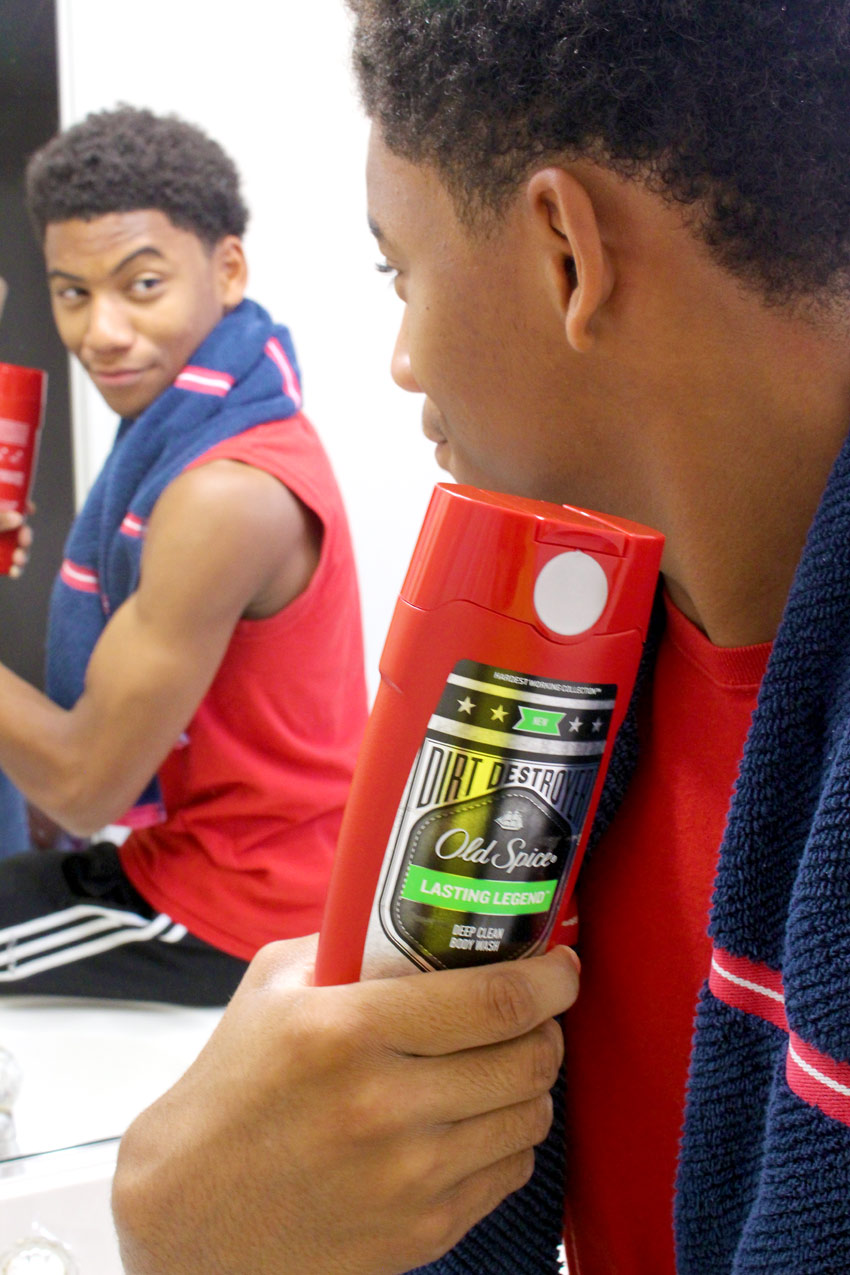People are always asking me what sponsored posts are and why I do them, so I did what a blogger does when people ask questions… I have put together a list of frequently asked questions about sponsored posts. If I didn’t answer your question here, you can ask it in the comments.
Q. What is a sponsored post?
A. A sponsored post can be a blog post, Instagram photo, Twitter post, Facebook post, YouTube video, or any online entry for which a writer was compensated, that promotes a company’s product, event, or service. Companies that have a product or service to promote come to bloggers who have an audience to introduce those products, usually in a particular way (i.e. Photos, video, unboxing, tutorials) that require the blogger to follow certain guidelines set by the company or client. Do not confuse a sponsored post with a boosted post on Facebook, Twitter, or Instagram that says “sponsored.” Those are advertisements paid for by the blogger or company so that you will see those posts in your feed. Sometimes I attend an event as press, and that isn’t sponsored. I may get entry to the event, but the purpose is to provide a story for my readers, not to advertise a product.
Here is one example of a Congressional Black Caucus event that I attended as press and the resulting story – [VIDEO] Cicely Tyson Shares a Story About Her Caribbean Mom
Q. Why do you write sponsored posts?
A. There are several reasons that people write sponsored posts. For many bloggers, blogging is not a hobby, it is a job, so sponsored posts for which they are compensated are critical so that they can get paid. Professional blogs are not free to run, and come with fees that Google ads and other forms of advertising may not cover fully. Some bloggers write sponsored posts to cover those costs. I write sponsored posts because blogging is my job, and because it helps cover the costs involved in running SocaMom.com. I also write them because people come to the blog for information on new products and services, and part of my job is to provide that information. Companies come to me because of the unique way that I present that information, and because my audience can trust my opinion.
Here is one of my favorites that is what I call quasi-sponsored. I paid conference fees, but I also received some compensation as a conference attendee – Give and Take: Reading Road Trip in Negril, Jamaica
Q. Do you always get paid for sponsored posts?
A. When I write a sponsored post, I get paid in either products and services, money, travel, or other compensation. Not all posts that are about a product or service are sponsored. Sometimes I write about products, services, and travel destinations that I enjoy without any compensation or input from any company, because sharing information is what I do. If I was compensated in any way in connection with a post, it is sponsored. If I write about a product and I was not compensated, it was not sponsored.
Sometimes the companies don’t sponsor the post, but I get a commission if someone buys products through an Amazon link. Here’s an example of a post with Amazon Links – 7 Caribbean Romance Books to Download This Valentine’s Day
Q. I thought you had a blog because you just loved to write.
A. There are a lot of reasons that I have SocaMom.com. One of them is that I love to write. I also enjoy things like lights, water, gas, food… popcorn at the movies… so I do what I love, and sometimes I get paid for it. If you can get paid for doing what you love, that is ideal. So I write for love… and sometimes I write for money. The money is a byproduct of doing what I love – a necessary byproduct.
I did a wonderful interview with my dad for Black History month which was sponsored. Check out the video – Black History Month: My Father’s Journey to the United States
Q. When you write a sponsored post, do they tell you what to say?
A. Sometimes. Often there are certain features of the product that the client wants to highlight. It may be a new feature, upgrade, sale price, discount or promotion, special event, etc. that I wouldn’t know about by just getting the product and testing it. I am usually given some sort of guideline that lets me know what to look for and discuss if I am testing a product, or an outline of the type of content that they think would best highlight their product’s features. That outline could include a request for a certain type or style of photo or specific language in a video, as well as disclaimers that let the reader know that the client has sponsored the content. The rest of the post is my story of my experience (or my kids’ experience) with the product, service, or travel destination.
Sometimes my kids do reviews. Here’s one of my favorites – Review of Peter and the Wolf in Hollywood App
Q. If it is your honest opinion, why do they pay you to share it?
A. My opinion is only part of the post. The part that they pay me for is my story. When I write a sponsored post, I am giving much more than my opinion, I am often taking photos that take a day to shoot and edit, or shooting a video that may take several days to shoot and edit. I am carefully crafting a story of my experiences so that my readers don’t just get a one dimensional opinion of what I’m writing about. These days, so many of our buying decisions are motivated by blogs and social media, and while opinions are free, my audience wants to be certain that they are getting what the companies are selling them. My words, pictures, videos, and stories help my readers make good buying decisions, and my clients pay me for the skill that it takes to share my experiences with their products the way that I do.
A lot of work goes into posts like these – How Does HP Instant Ink Work?
Q. Can you really give an honest opinion when you get things for free or get paid?
A. If I don’t like something, I just don’t like it. If I am hired to review or promote something, and I find that it isn’t a good product, I don’t usually review it. I was raised that if you don’t have something nice to say, don’t say anything at all. There are times where I have to say something, for example, if it is a movie review, and the movie isn’t suitable for certain ages, then I review the movie and share that information with parents. That is why they read the blog. If I am sent a book to review, and the book isn’t’ good, I don’t trash the book on my website and take a check from the publisher. I don’t trash anything on my blog. I keep it positive, and share good experiences, tips, and favorite features. Will I warn my readers if something is dangerous, gave me an allergic reaction, or wasn’t suitable for whatever reason, yes. Will I trash a product on the blog and get paid for it? No. Will I lie and say I like, love, or use something that I don’t, just for compensation? No. It isn’t worth losing the trust of my readers and my community.
Here’s a sponsored post for a movie that I was critical of – [#Review]: Disney’s The BFG
Q. Are all of your posts sponsored?
A. I go places and use products that I pay for all the time. My posts always have a story, sponsored or not. My whole life isn’t sponsored, and neither are my readers’. I eat in restaurants that I enjoy, see movies for which I bought tickets, and travel on my own dime. I share information about those places and products for the benefit of my readers. Sometimes it may look like a sponsored post because there are photos and video, but that is part of the reason that my sponsored posts are so good, and… well, readable. I treat sponsored experiences just like the ones that come out of my pocket when I share them with my community.
Here’s a post that I did for a law school project. It wasn’t sponsored, but was so cool that it could have been – [VIDEO] 3 Tips for a Better Bedtime – Justin Bieber SORRY Parody
Q. How can I tell if a post is sponsored?
A. When a blog post is sponsored, I disclose my relationship with the company before any links to their website, per FTC guidelines. After the post, I have a disclaimer that states the nature of that relationship, and that reminds you that all opinions are my own. If a post on social media is sponsored, it will have the words “ad,” “sponsored,” “hosted,” or other wording indicating that I was compensated in some way for sharing the information.
Some posts are fancier than others, and it may be hard to tell, but I always have a disclosure. This one was for a our regular game night, so it was just us having fun and playing a game that we were sent to review. [VIDEO] Review of PlayMonster’s Qubosity
Q. Do you have posts that are sponsored, but you don’t tell us that it is?
A. No. The FTC requires that I disclose my relationship with my clients, and I always do so. I have nothing to hide. Sometimes my sponsored posts are some of my best writing!
Here is some great information from the FTC on “Native Advertising.”
Q. Do you do posts for companies that aren’t sponsored?
A. If a post is FOR a company, then it is sponsored. If it is ABOUT a company, then it may or may not be sponsored. For example, if I stay at a particular resort, pay for my stay, and write about it, my community may decide to stay at that resort because of what I wrote, even though I didn’t write it FOR that resort. I may tweet about a festival that I am going to, just because I am going, and have no connection with the festival organizers. My readers may decide to go as well based on the fact that we usually enjoy the same types of festivals, but it didn’t tweet FOR the festival and was not compensated.
Here is a post about one such festival. I didn’t attend, but I figured my audience would appreciate the information – Caribbean American Heritage Month: Grace Jerk Festival Comes to Downtown DC
Q. How do you come up with creative ways to write sponsored posts?
A. Everything I do and every product I use has a story. I have a feeling, reaction, and experience with everything I use from the nail polish I choose for a girls’ night out, to the shoes I wear when I am running through the airport for a connecting flight. It isn’t hard to be creative because my story is always going to be different from anyone else’s because it is mine. That is what the client is paying for in a sponsored post, my unique perspective.
I wrote this sponsored post based on a unique experience that couldn’t be duplicated by anyone else – Faith in Flight: Staying Grounded while in the Air
Q. What do you do when you don’t like the product?
A. I tell the client that I won’t be able to review it, and let them know why. Most of the time, I don’t agree to review it without being fairly confident that it will be beneficial to my community.
Q. Lots of bloggers don’t do sponsored posts, do you have to do them?
A. I don’t. No one HAS to do sponsored posts. Many bloggers have a product or service of their own that they promote, and write to attract customers to that product. For example, a blogger may have written a money management book, and writes posts with tips on how to manage your money. Readers come for the tips, but may buy the book for more information. Those posts are not necessarily sponsored, but they might result in revenue for the blogger. Those bloggers may not do sponsored posts that promote others’ products. I do both. Here is a tutorial on how to create a plush spider toy that also promotes my book Anancy’s Family Reunion – How to Make Your Own Anancy Spider Plush
Sponsored posts are not a requirement for anyone.
Sometimes companies send products for me to try, and it is my option to write a post or not. Here is a post from one such product trial – A Long Lasting Twist Out Style for My Tween
Q. Sometimes I see a lot of bloggers writing about the same event or product, why is that?
A. It is the same reason that you see a McDonald’s commercial on several different channels, with different actors, in languages, with different styles of music and announcers. My community wants to hear about my unique experiences with products and services, because they trust my opinion and can relate to me in some way. Maybe they are also homeschoolers looking for a good printer or vacation destination that incorporates learning. If a company wants to reach a wide range of people, they need a lot of different voices. Having different bloggers from diverse backgrounds talk about their products is a good business practice that the most successful companies have always used in other types of advertising.
We are more alike than we are different, but diversity matters. I put a Caribbean spin on this post for a Disney Side event, and it was a huge hit with Caribbean and non-Caribbean people alike – Minnie Mouse Caribbean Carnival Headpiece Tutorial
Q. How much do you get paid for each sponsored post?
A. That depends on what has to be done for each post. Sometimes I am paid based on the number of words I write, how many photos are required, whether or not a video is included, and a host of other factors. Is there a range? Not really. There’s no set rate for any post because as a blogger, all of my posts are unique to me and my experience with that product, service, or travel destination. If you are a blogger who came here to find out what you should charge for a post, I know this isn’t what you wanted to hear. If you are just wondering how much bloggers make, there are bloggers who post their monthly income online all the time. I’m just not that blogger. You can Google them though!
Q. What do you do with all that money?
A. Same as everybody else… Pay bills.
Do you want to support friends (and bloggers), but the budget is slim? Check out this non-sponsored post for tips – 7 Ways You Can Support Your Entrepreneurial Friend Without Spending a Dime
Q. How do companies find you?
A. I am a member of groups that work with clients to find bloggers that are a good fit for their product or service. I am also contacted by public relations agencies, and recommended by other bloggers. I’ve built a reputation as a great storyteller, so sometimes companies find me by word of mouth.
My daughter LOVES working on these campaigns – B’gosh Believe: Ten Tips for Holiday Shopping with Your Tween at OshKosh B’gosh + Coupon Code & Twitter Chat!
Q. Sometimes I don’t want to be sold to, I just want to read a blog post, how do I avoid sponsored posts?
A. All of my sponsored posts are marked as such with a disclaimer. Any time you read something, watch something, do something, use something, you are being sold to – every single time. When you watch a TV show, and a character cracks open a certain brand of soda or drives up to their house in a certain type of car, you are being sold to. When you read a non-sponsored blog post that has great writing and amazing photos, you are being sold to. That fantastic post sells you on that writer’s ability to inform and entertain you – and that’s a good thing. A good sponsored post will be more than a copied and pasted press release with photos from the company’s website. It will be that blogger’s opinion of, experience with, and unique perspective on that product, service, or destination. The commercials that we love the most are the ones that we know are ads, but we love because they touch us in some way. We remember old ones from our childhood, and call family members over to see others that are particularly funny or interesting. That is what a great sponsored post does – informs and entertains. There’s no reason to avoid a sponsored post if it is done right.
Check out this one where my kids show off their comedic timing – Decorating My College Bound Teen’s Small Space with #AtHomeStores
Q. What should I do when I see #ad or #sponsored in a post?
A. Click on it. Read it. Comment on it. Share it. If it is a good sponsored post, do the same thing that you would do when you see any good piece of writing, new technology, or a great destination online. Sponsored posts might be part of what keeps your favorite blogs up and running, and gives your favorite blogger the resources to create and nurture the community that you enjoy. Sponsored posts might be what keeps the site, and the tools it provides, free for you to use. So when you see a sponsored post on your favorite blog, that’s a great thing! Be happy and share freely – for the blog, for the community, and for yourself.
These are my answers to these questions. Other bloggers may have different answers or opinions on sponsored posts, so this doesn’t apply to everyone. If you have particular questions for a specific blogger, you’d have to ask them…
Do you have a question that I didn’t answer here? No problem, ask your question in the comments, and I’ll try my best to answer!




